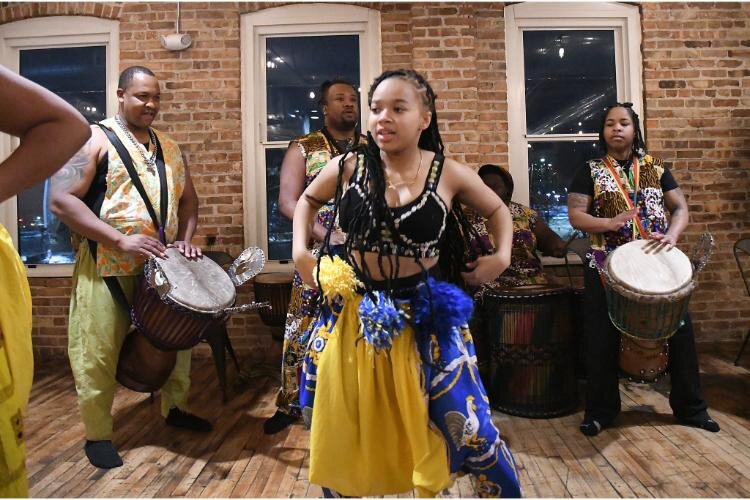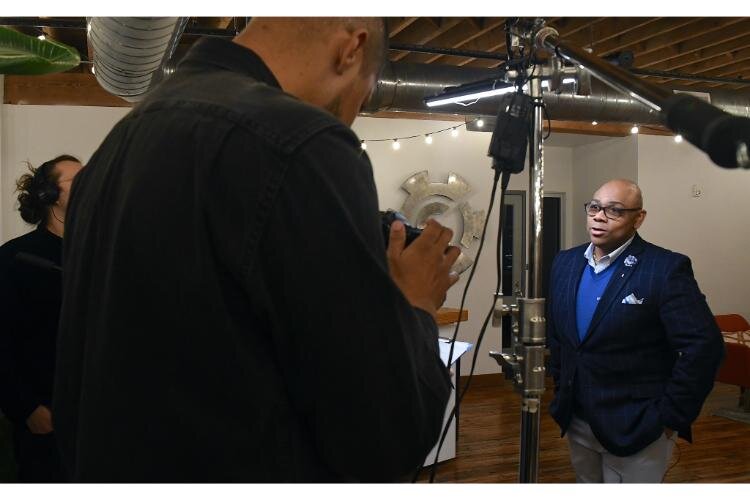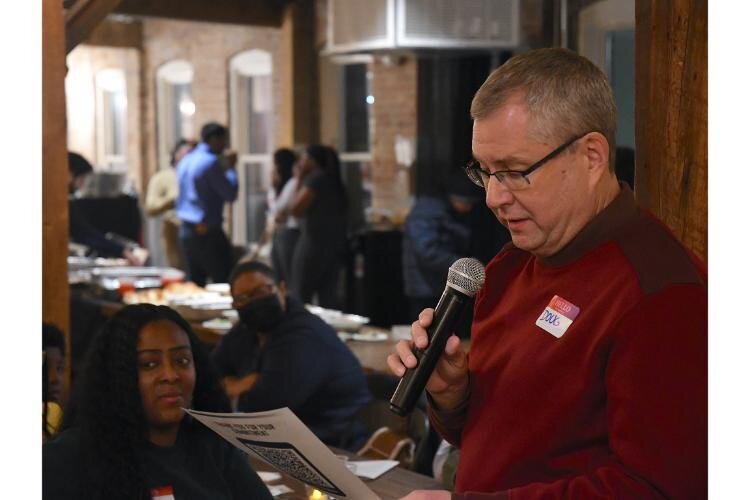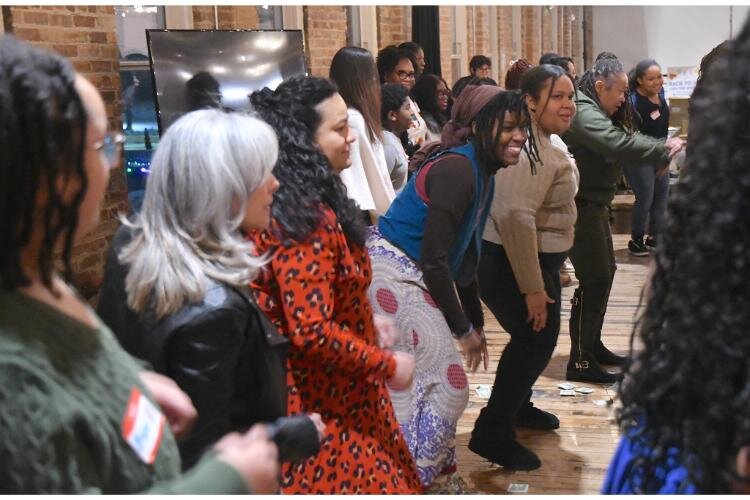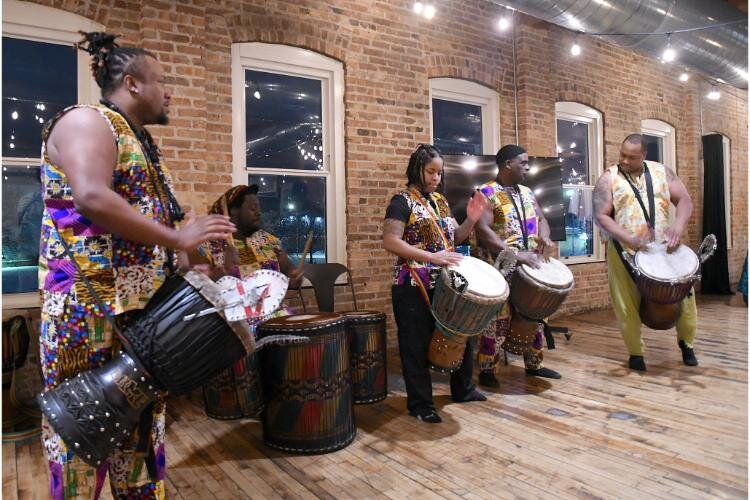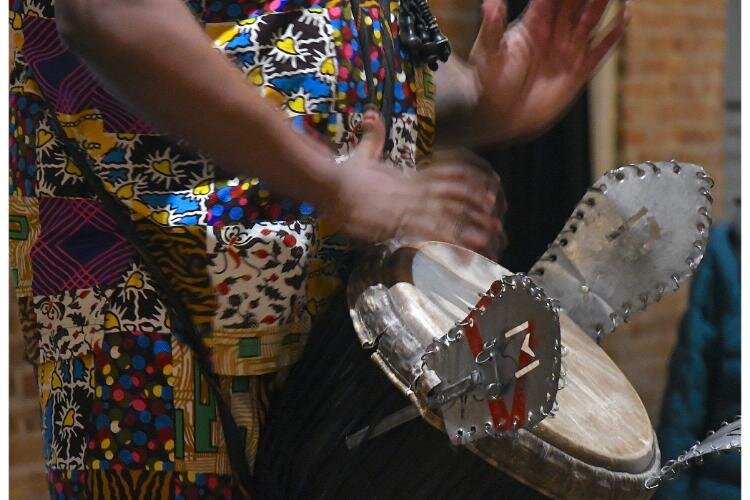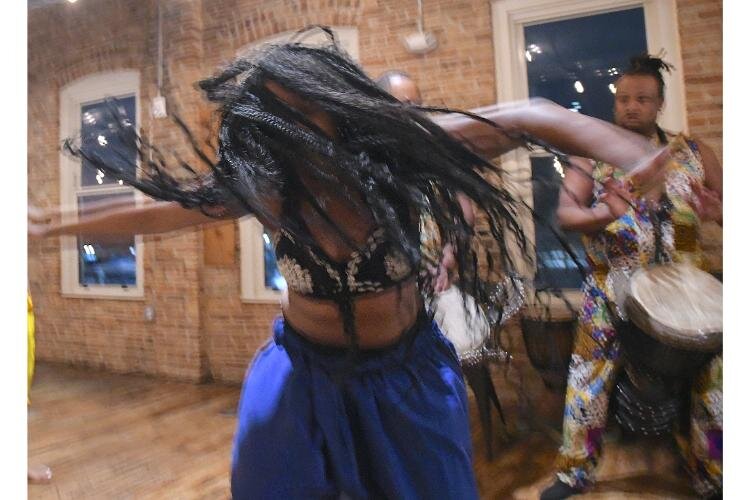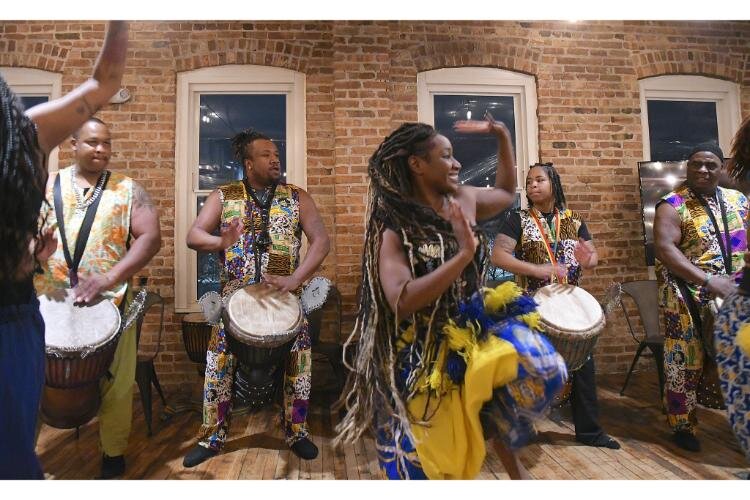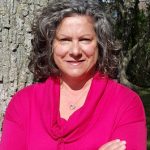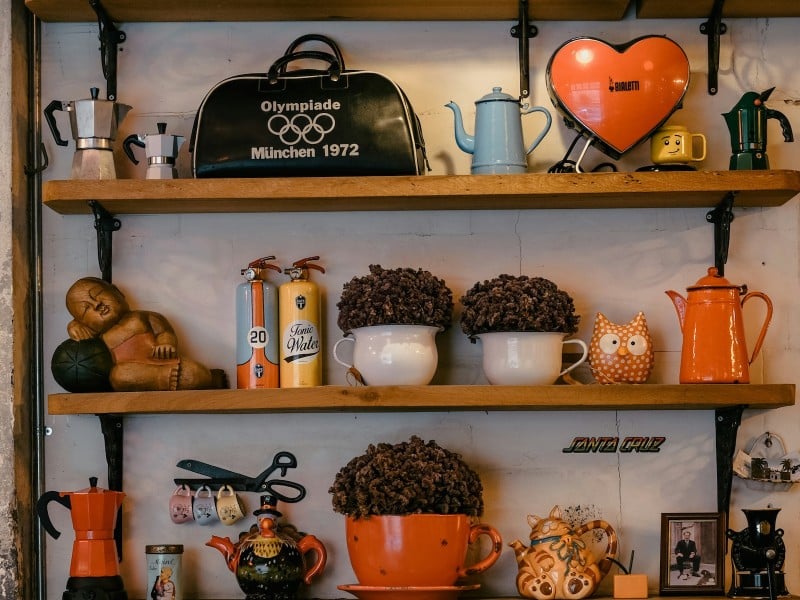Community comes together to envision a Battle Creek free of racism
“We have to have more safe places like this where we can enjoy each other's company and food. We are human, we have feelings and we need to support each other to provide a better living for our community."
Editor’s note: This story is part of Southwest Michigan Second Wave’s On the Ground Battle Creek series.
BATTLE CREEK, MI — The opportunity to envision what a racism-free Battle Creek would be like in 100 years was offered and residents, leaders of nonprofits and businesses, and elected officials showed up to share their visions.
After a Welcome Song he performed on Tuesday to begin the National Day of Racial Healing (NRDH) Envisioning Dinner, Fred Jacko, an Odawa Indian and Manager of the Nottawaseppi Huron Band of the Potawatomi’s Culture and Language Department, said, “We always appreciate as American Indians having that invite at the table.”

Drumming paired with dancing would end the evening with a performance by Nanou Djiapo, an African drum and dance group that empowers young artists in the Metro Detroit area through the performing arts.
Over a meal that featured Asian, Mexican, and American cuisine, about 150 participants shared their stories and hopes during the eighth annual NRDH hosted by the Battle Creek Coalition for Truth, Racial Healing, and Transformation. The local gathering was part of events taking place throughout the United States on the eighth annual NRDH.
The agenda featured very few scripted moments, among these were three questions tablemates were asked to answer: Share three things that make you feel your most powerful and strong; share what is special/unique about your name; think of a time you felt welcomed.
This moment was followed by questions on Vision Cards placed at each table that asked how their visions smell, taste, sound, look, and feel. These cards were collected at the event’s conclusion and will be used to put together a plan on how to begin now to bring their visions to fruition in 100 years.
“I would like to see an afterschool program in all school buildings that need them. I would like to see Black men live longer than the average of 70 years. We have perspectives from prior centuries and it would seem like they should be heard. I would like it to look and feel like all people could afford transportation, food, and homes. I would like it to look more inclusive and fair,” says a woman from Battle Creek, who was not publicly identified.
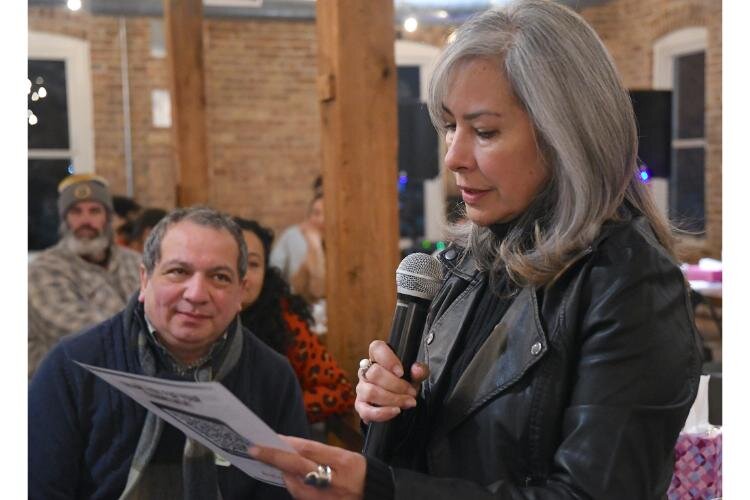
Among Group Agreements created by leadership with BCTRHT was respect for confidentiality among participants.
“In order to foster a safe space for honesty and truth, we ask that participants agree to keep information and stories shared here confidential. Only share information that you feel OK sharing.”
And there were those, most notably high-profile leaders in the nonprofit sector, who gave their permission to share their names and thoughts.
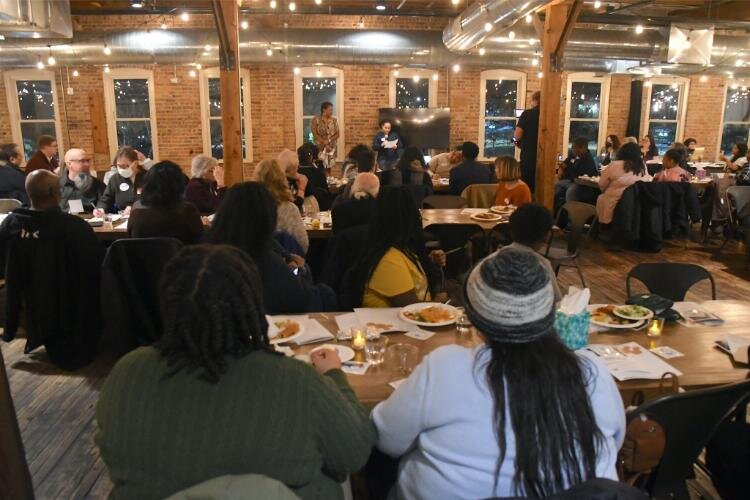
“Nonprofit organizations are essential for well-being in our community,” says Tha Par, Executive Director of the Burma Center. “I would love a world where nonprofits determine the priorities for their communities, where there are endowment funds for nonprofits because we know we are a lifeline for our community members.
“I would like to see an end to homelessness. It’s so cold outside tonight. I can’t imagine not having shelter. The other thing I think is really important is our young folks need international experiences. I have met people my age who have not been on a plane or left Michigan. We need to bring up youth that are visionary and more inclusive. That is my dream.”
Vania Word, Chief Inspiration Architect for the Art and Culture Collective Battle Creek, says, “One of the only things I wanted to write down is that I imagine a world where people don’t have to question their existence.”
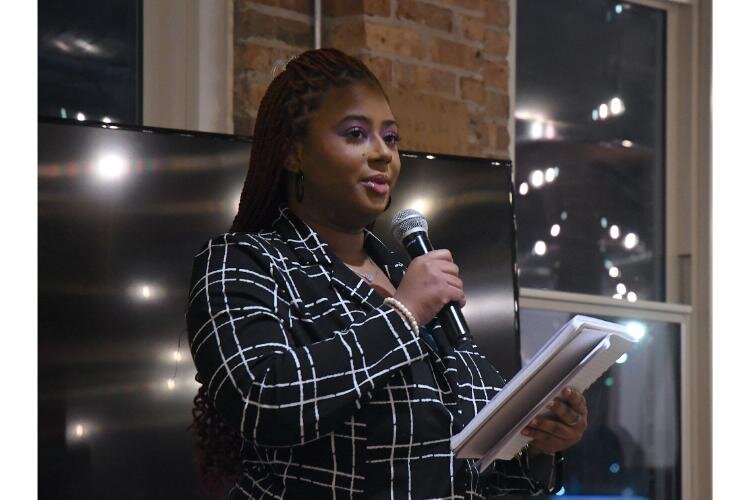
Spoken Word performances featured the voices of four young women who aren’t questioning their existence. (Editor’s Note: Please see Seventh Grader LaNniyah White’s poem below.)
These words and those of the other young women resonated with participants, including a man who traveled from Ann Arbor to attend the Envisioning Dinner.
“We have to have more safe places like this where we can enjoy each other’s company and food. We are human, we have feelings and we need to support each other to provide a better living for our community. We need these spaces to share our sorrows, pain, and trauma.”
The fruits of envisioning results that won’t happen in our lifetime
“I don’t know about you, but in 100 years I’m not planning to be here,” said Rosemary Linares, Co-Coordinator of BCTRHT, to participants. “This look ahead is rooted in Indigenous practices. We need to look back and fetch what’s important as we’re looking into the future.”
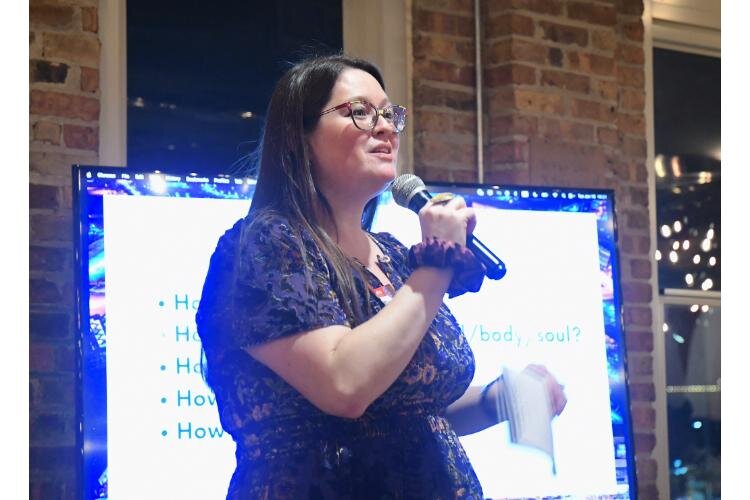
Borrowing heavily from the Seventh Generations Principle, a philosophy that the “decisions we make today should result in a sustainable world seven generations into the future,” Linares said earlier that “people will be looking at what they want to bring to fruition knowing that they won’t be there to see it.”
This is similar to the movement begun by the late Martin Luther King, Jr., who was born in 1929 and would not live to witness the fruits of his labor. Now, almost 100 years after his birth, Linares says huge strides have been made, but society is like a pendulum that has swung into a place where it’s embroiled in extreme division and fear.
“TRHT’s work is rooted in abundance, interdependence, values, and trust,” she says. “I’ve transformed since I’ve been involved,”
Through opportunities including TRHT’s Racial Healing Circles, Linares says she has seen people establish friendships and relationships and work together for positive change.
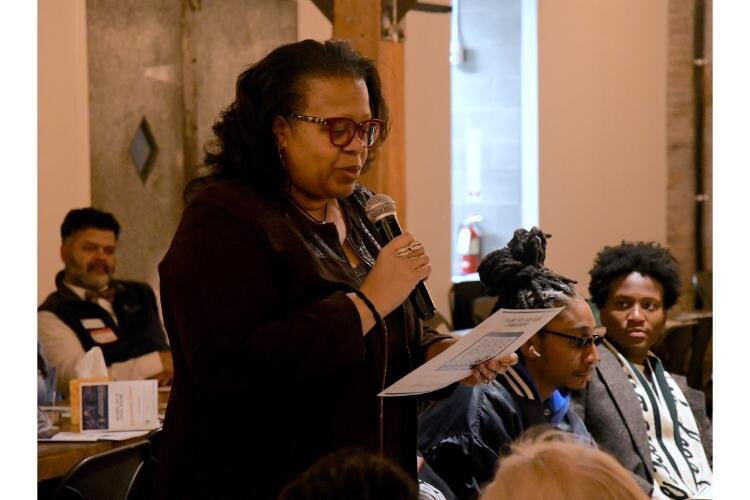
“When we have friendships and relationships it’s a lot harder to demonize or other them,” she says.
The sharing of each other’s stories forms a commonality. While acknowledging that it’s going to take “a lot of work to get there” and there may be political pushback, Linares says “We know we’re doing the right thing in getting connected and being involved.”
But, it’s not just individuals who benefit from this connection and involvement. She cites the City of Battle Creek’s decision to hire Kimberly Holley as its first-ever Diversity, Equity, and Inclusion Officer.
“This demonstrates the city’s commitment long-term to building an inclusive environment,” Linares says.
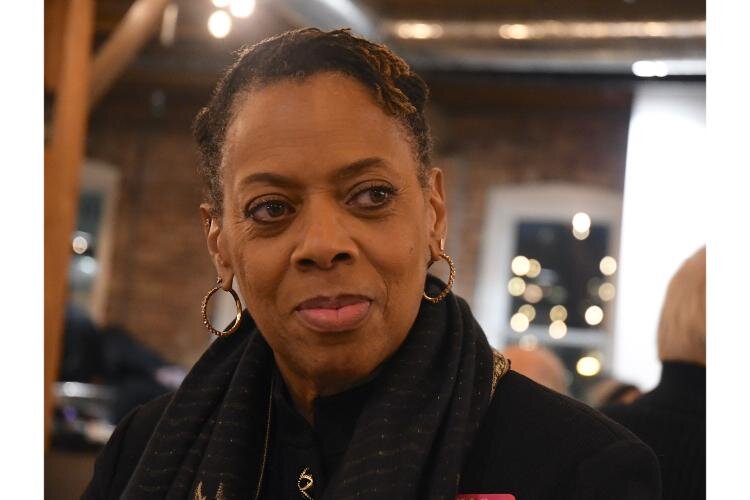
Her attendance at the NRDH Envisioning Dinner is part of Velois Bowers’s journey as the Vice President and Chief Diversity Officer with Bronson Healthcare.
“Part of our strategy is to focus on DEI and equity at the core of our business strategy. This is part of our journey of learning and working with the community on the importance of racial healing,” Bowers says.
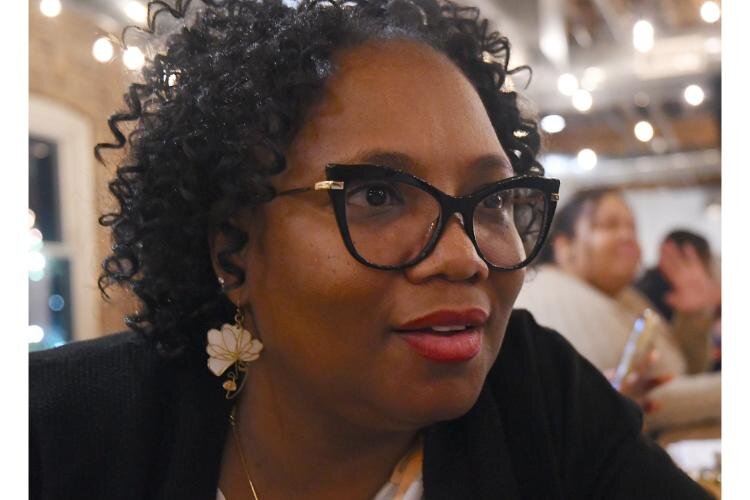
Her colleague, Beatrice Orns, an Organization Development and Learning Specialist with Bronson Healthcare, says the gathering provided a “wonderful opportunity to connect with people who have the same visioning goals to tear down barriers and improve connectivity.”
Her interest, she says, was to connect with like-minded people.
“I hope to take away the joy and energy from people who are working to eliminate racism in our community. I believe in humanity and the power of relationships. There’s so much more that connects us.”
Those who weren’t able to attend Tuesday’s event will have additional opportunities later this month and in February when BCTRHT partners with community organizations to host “Community Envisioning Conversations: Battle Creek Without Racism” at various locations throughout the City. Dates and locations are listed on the BCTRHT website.
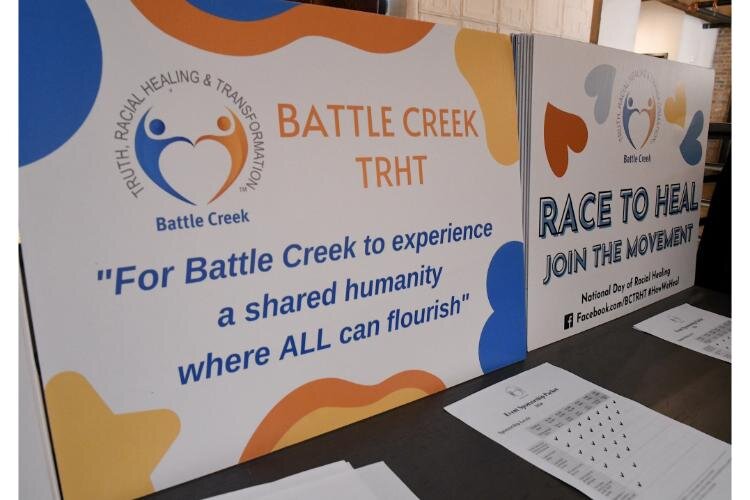
Linares says BCTRHT is in a new phase of its life cycle and has a growing team of people working on programming and events, including Elizabeth Garcia, Program Director and Victoria Fox-Ramon, Creative Community Connection Coordinator.
“We know we’ve been operating more behind the scenes and were looking forward to debuting more public events,” she says. “These community conversations tap into a world we have never known and has existed in this country since its founding and that’s hard. It’s something that has never existed in our common history.”

Editor’s Note: LaNniyah White, 12, who is in 7th grade at Arbor Academy expressed her thoughts through a poem she wrote:
Battle Creek is home to over 50,000 people,
Yet, it’s unfortunate we’re not all viewed
equal.
Racism is something that can be seen every day, by
observing the things that people do and what they say.
When we walk into malls or even grocery stores,
how many think we’re stealing and want to lock the doors
There’s multiple shades of black as we are
colorful people
But true equality is what we lack because we’re
hardly treated equal
We all must work together to bring racism to an
end.
An important and powerful message that we all
need to send.
Abraham Lincoln saw that slavery was wrong and
decided to make a change and the decision was bold and strong.
After a long war, slaves were declared free, a
date we won’t forget January 1st, 1863.
We all like the holiday Juneteenth, this we can
agree
But did you know that this is when the last of
the slaves were set free?
This was a part of my history I did not read in a
book, but a lesson I learned like playing chess with a rook
Many black people encounter police with cases
piling, some who survive know it’s from racial profiling.
Even at school, they don’t truly see me, I got in
trouble and was called colored after I was bullied.
They said they don’t see color, but clearly that
was untrue Because to see me as colored, means you don’t have a clue
I am black beautiful smart and funny
To tell me there is no racism, you must think
I’m a dummy
If Battle Creek had no racism, we would all be
kings and queens, but we live in reality and not kid-like dreams.
Without racism, innocent lives wouldn’t be taken,
and wanted criminals wouldn’t be mistaken.
A utopia in the making is what one would desire.
Where all little kids sing by a campfire
Growing up in a city where I am viewed and treated
equal, is as exciting as going to the movies to watch a sequel
Getting a job would be based on my performance,
rather than the color of my skin being of importance
Children could go to whatever college they want to
begin, and their test scores wouldn’t be assumed by the color of their skin.
Battle Creek is not perfect but it’s the city we
live in, so we must improve it and let the changes begin
We live in a world that will degrade you and try
to tear you down,
Never forget, black is beautiful and straighten
up your crown!!!!

